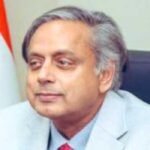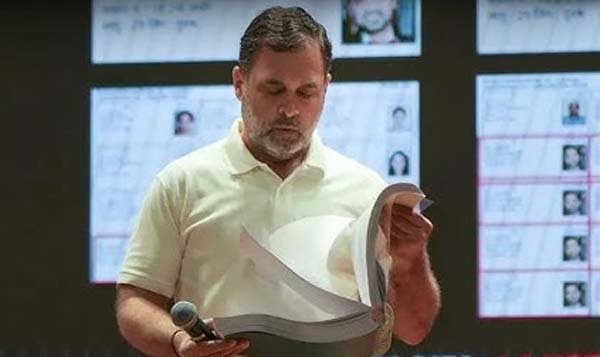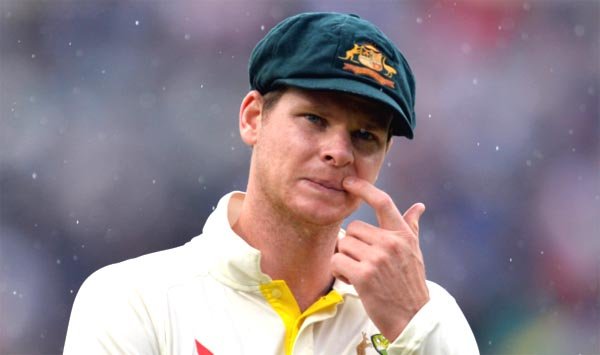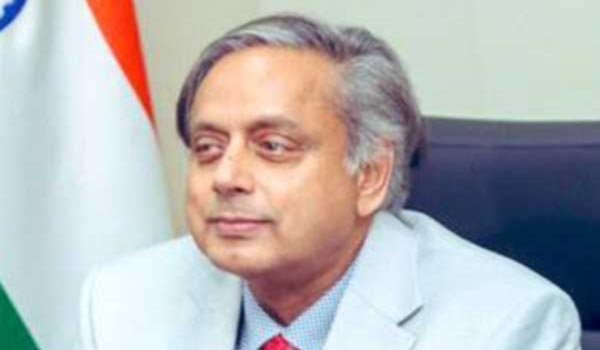New Delhi, Nov 19 (UNI) As many as 272 eminent citizens, including several retired judges, bureaucrats, and armed forces officers, wrote an open letter titled “Assault on National Constitutional Authorities”, accusing Leader of the Opposition Rahul Gandhi and the Congress party of attempting to tarnish constitutional bodies, such as the Election Commission of India, through “venomous rhetoric” and “provocative but unsubstantiated accusations.”
Opposition parties led by Congress MP Rahul Gandhi have been accusing the Election Commission of colluding with the ruling Bharatiya Janata Party (BJP) to “steal” votes in several states and using the Special Intensive Revision (SIR) to facilitate this.
The letter, signed by 272 prominent citizens—including 16 judges, 123 retired bureaucrats, 14 former ambassadors, and 133 retired armed forces officers—alleged that certain opposition leaders are deliberately trying to create an impression of institutional collapse through “venomous rhetoric” and “provocative but unsubstantiated accusations.”
In the statement dated 18 November 2025, the signatories warned that Indian democracy is facing an “assault, not by force, but by a rising tide of venomous rhetoric directed toward its foundational institutions.”
They alleged that certain political leaders, instead of offering credible alternatives or engaging in meaningful policy debate, are launching “provocative but unsubstantiated accusations” as part of a “theatrical political strategy.”
The letter directly criticises Leader of the Opposition Rahul Gandhi, accusing him of leading “systematic and conspiratorial attacks” on the Election Commission.
According to the signatories, Gandhi has made repeated and “deeply disturbing” charges of vote theft, even claiming to possess “100 per cent proof”.
The letter quotes him referring to the evidence as an “atom bomb” that would leave the ECI with “no place to hide” and notes his alleged threat that he would “not spare” anyone in the Commission, “from top to bottom.”
Yet, the group points out that “no formal complaint has been filed… along with the prescribed sworn affidavit”, which it says raises questions about responsibility and accountability.
The signatories argue that these accusations stem from political frustration rather than fact.
“This pattern of behaviour reflects what might be called ‘impotent rage’ — deep anger born of repeated electoral failure and frustration, without a concrete plan to reconnect with the people,” the letter states.
It adds, “Theatrics replace analysis. Public spectacle takes the place of public service.”
They highlight what they describe as a double standard, “When electoral outcomes are favourable… criticism of the Election Commission disappears. When they are unfavourable, the Commission becomes the villain.”
The letter recalls the legacy of former Chief Election Commissioners T N Seshan and N Gopalaswami, saying their “unyielding leadership transformed the Election Commission into a formidable constitutional sentinel.”
“They did not chase headlines… They enforced rules fearlessly, impartially, relentlessly,” the statement says, contrasting that ethos with today’s political climate.
The group also raises broader concerns about electoral rolls, stressing that “fake or bogus voters, non-citizens, and individuals with no legitimate stake in India’s future must have no place in deciding its government.”
It cites global examples, including the US, UK, Australia, Japan, South Korea, Germany and France, to argue that democracies worldwide treat illegal immigration seriously to protect electoral systems.
“If other nations guard electoral integrity so resolutely, India must be equally proactive,” the letter declares.
The signatories reaffirmed “unshakeable faith” in the Indian Armed Forces, Judiciary, Executive, and particularly the Election Commission, urging the public to see through “baseless allegations and theatrical denunciations.”
They call on political leaders to “respect the constitutional process… and accept democratic verdicts with grace.”
“The time has come for leadership rooted in truth, not theatrics; in ideas, not invective; in service, not spectacle.”











